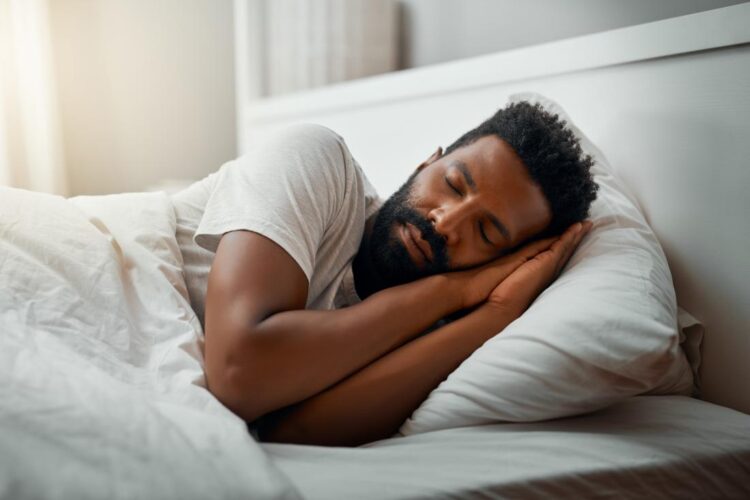For most of us, sleeping is only a necessity. With the workaholic lifestyle that is promoted by our society nowadays, sleep is often cut shorter than it needs to be. Moreover, it’s also restless and stressful. People worry about things before sleeping—”What about that test tomorrow?” or “What about my early tomorrow?”
Because of these factors, our quality of sleep grows poorer and more miserable every day. But did you know that sleeping has a lot of health benefits? A good night’s sleep is extremely beneficial to your health. From overall wellbeing to reducing the risk of chronic diseases, as well as improving your mental health—a good night’s sleep should be on your priority list in taking care of your health, we have more information here.
Sleeping keeps the heart-healthy

People who don’t get enough sleep or get too much sleep are at a much higher risk of developing cardiovascular diseases. This is regardless of other determining factors such as age, weight, substance abuse, and family history.
It is quite unclear why obstructed, and short sleep affects the heart negatively. However, a good case to consider is that a study has found people suffering from sleep apnea (a condition that causes breathing difficulties during sleep) have weaker heart health.
This is because sleep is a process of the body regulating and maintaining its vital systems. With under-sleeping or oversleeping, these functions such as glucose metabolism, blood pressure, and inflammation are interrupted.
Sleeping boosts the immune system
That’s right. Sleeping also affects your immune system. Lack of sleep or poor quality of sleep leads to a higher risk of exposure to viruses (like the common cold) as it disrupts the natural system of how your immune cells work.
This is the reason why people who don’t get enough sleep easily catch colds. When we sleep, the body releases proteins that fight off infections and lessen inflammation. When sleep is compromised, the production of that protein is also compromised.
A good night’s rest is also sometimes the suggested remedy for headaches and minor fevers, while at the same time, resting the body and resetting the bodily functions.
Sleeping gives you a sharper mind

While you may be cramming for a test, and sacrificing those good hours of sleep, sleeping actually helps you have a sharper mind. This means sharp in the sense of being more alert and having a better memory.
Sleep actually converts the material you’ve learned from short-term memory into long-term memory. This way, you have higher chances of remembering what you studied even in later periods of time.
Moreover, with a rested mind and a relaxed body, you are more alert to your surroundings, and you can pick up details around you that otherwise would be too difficult if you are sluggish or unrested.
Sleeping keeps your weight controlled
A healthy sleeping habit is essential in keeping your weight controlled. Countless numbers of studies have linked shorter hours of sleep to being overweight or obese. This is because a lack of sleep causes an imbalance in the hormones that your body produces for your eating appetite.
Aside from affecting your eating habits, sleep deprivation also leads to unhealthy decisions for your daily activities. Because you’re tired in the morning—you are more likely to grab coffee than eat breakfast, you are more likely to be less active during the day, and you might even want to skip working out.
When you are trying to lose or maintain your weight, it is essential to watch your sleep as well.
Sleeping lowers the risk of cancer

By ensuring that you are sleeping the right amount every night, you are actually lowering your risk of developing some types of cancer.
This is scientifically proven by a study that put women of varying work schedules to the research. It was found out that women who worked for at least four years of night shifts were at a higher risk of developing breast cancer.
This is because light exposure reduces the production of the hormone melatonin. Melatonin regulates the sleep cycle and prevents the growth of tumors.
Sleeping reduces the risk of depression
As you may have probably learned from what is discussed in this article, sleep affects the production of a lot of hormones in the body. One of those hormones is serotonin. Serotonin deficiencies have been linked to depression.
Moreover, the link between sleep and depression is rather correlational. Sleep deprivation leads to depression, and depression leads to sleep deprivation.
A good night’s sleep not only does wonders to your physical health but also to your mental health as well. That’s why it’s essential to get a sufficient amount of sleep every night.
Keeps your body running

Poor sleep can lead to fatigue if ongoing, “1 in 3 Americans say they do not get enough sleep” From the Centers for Disease Control and Prevention (CDC).
Lack of sleep can hinder an individual from fulfilling their normal tasks. It can make it hard to urge out of bed within the morning. When it affects safety, for instance, on the road, it becomes a public health concern. In severe cases, an individual may show signs almost like that of an intoxicated state.
There are different types of fatigue.
Physical fatigue: Is when a person finds it physically challenging to try things they usually do, for instance, climbing stairs. Physical fatigue includes muscle weakness, and you can self diagnose with a strength test.
Mental fatigue: With mental fatigue, you can find it harder to process things and stay on task. Mental fatigue has the effect of feeling sleepy or having problems staying awake while working.
Enhancing Skin Health Through Sleep
Did you know that beauty sleep isn’t just a catchy phrase? The quality of sleep you get can have a direct impact on your skin’s appearance. When you drift into the deeper phases of your slumber, your body gets to work repairing and regenerating skin cells. This is the equivalent of nature’s spa treatment, right in the comfort of your bed.
One fascinating insight is the increase in blood flow to the skin during deep sleep. This uptick in circulation promotes collagen production. Collagen, a protein responsible for skin elasticity, is the reason some individuals seem to defy age. Hence, more sleep can translate to fewer wrinkles and fine lines and even if you need sleep remedies you should take them as it would aid your overall and skin health. .
But that’s not all. Sleep also keeps our complexion radiant. Ever noticed that after pulling an all-nighter, your face might sport a zit or two? Adequate sleep reduces the risk of acne and other inflammations, allowing you to wake up with a fresh face.

Sleep and Hormonal Balance ─ The Unsung Hero
Sleep isn’t just about resting. It plays an instrumental role in regulating the body’s hormonal production. Cortisol, insulin, and thyroid hormones, pivotal to our body’s functions, are heavily influenced by our sleep patterns.
Consider cortisol, often termed the “stress hormone.” Disrupted sleep can lead to its overproduction, affecting our mood, metabolism, and energy levels.
Practical Tip: Prioritize your sleep. Consistent sleep routines can make a significant difference in maintaining a balanced hormonal profile, leading to a happier, healthier you.
Conclude
You can combat all of these points with a good night’s sleep, make sure you have a wind-down time before bedtime, and start implementing a nighttime routine.
A great night’s sleep can help
- keep the heart-healthy
- boost the immune system
- you have a sharper mind
- keep your weight controlled
- lower the risk of cancer
- reduce the risk of depression
- keep your body running
 Hi Boox Popular Magazine 2025
Hi Boox Popular Magazine 2025



